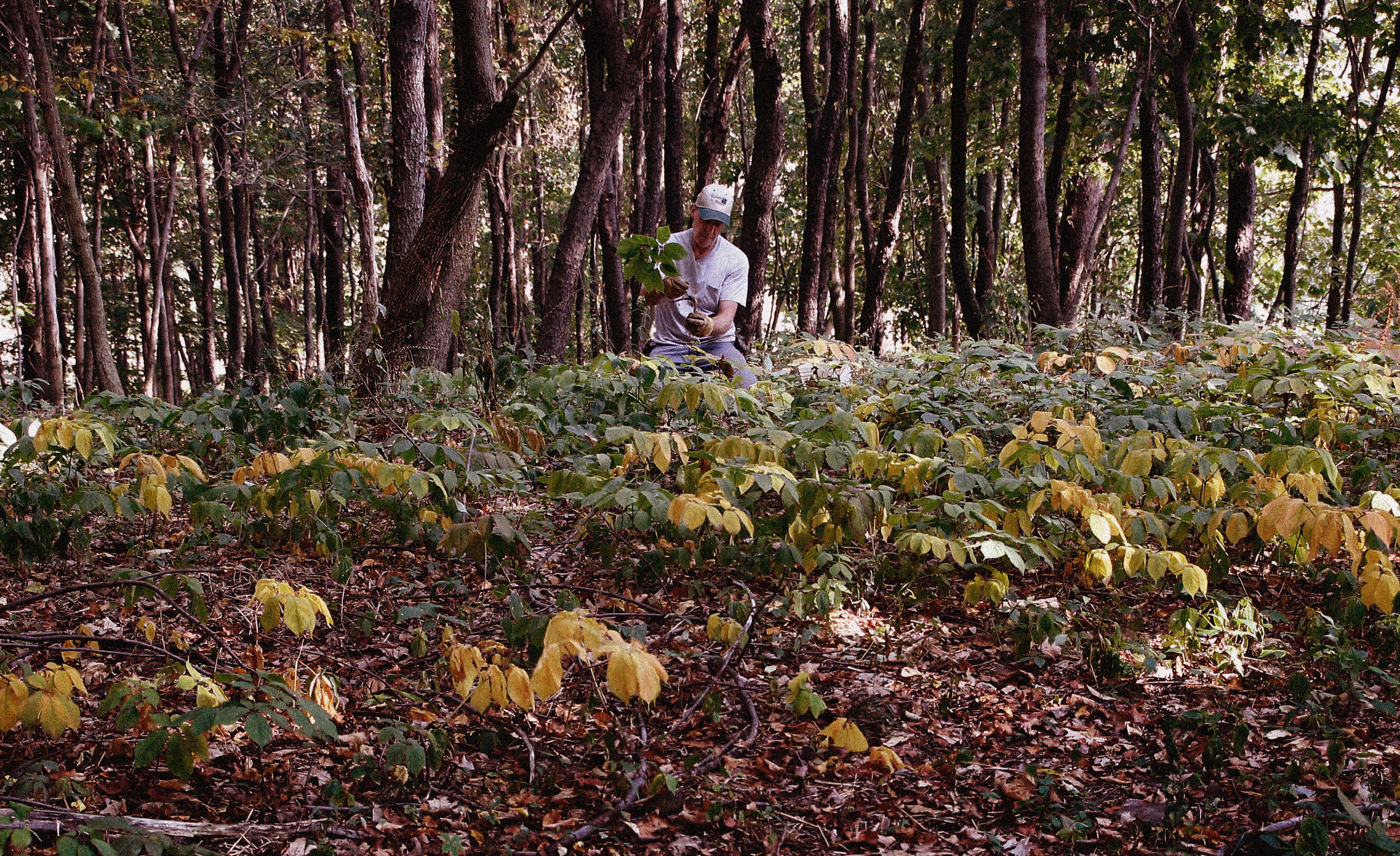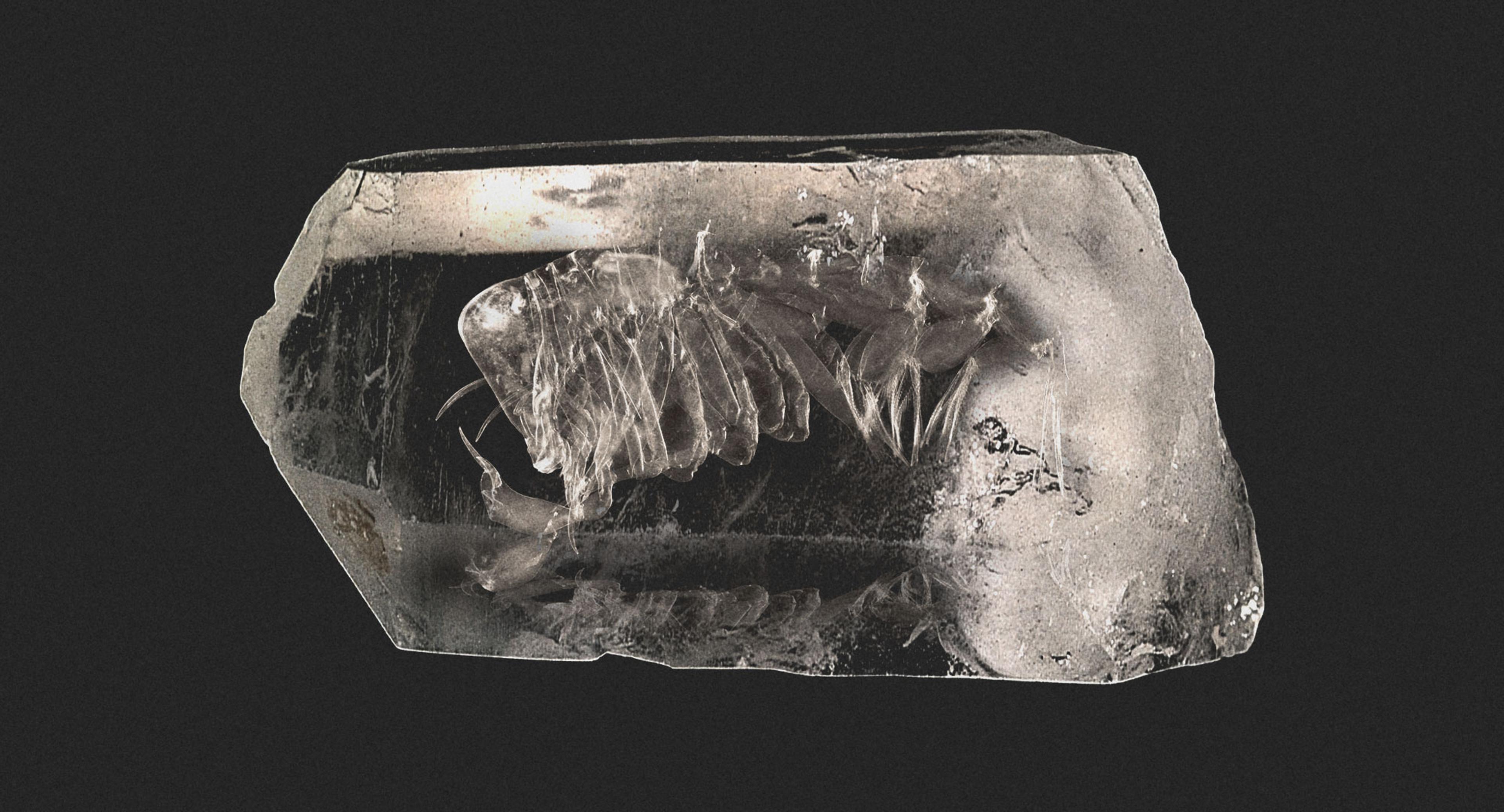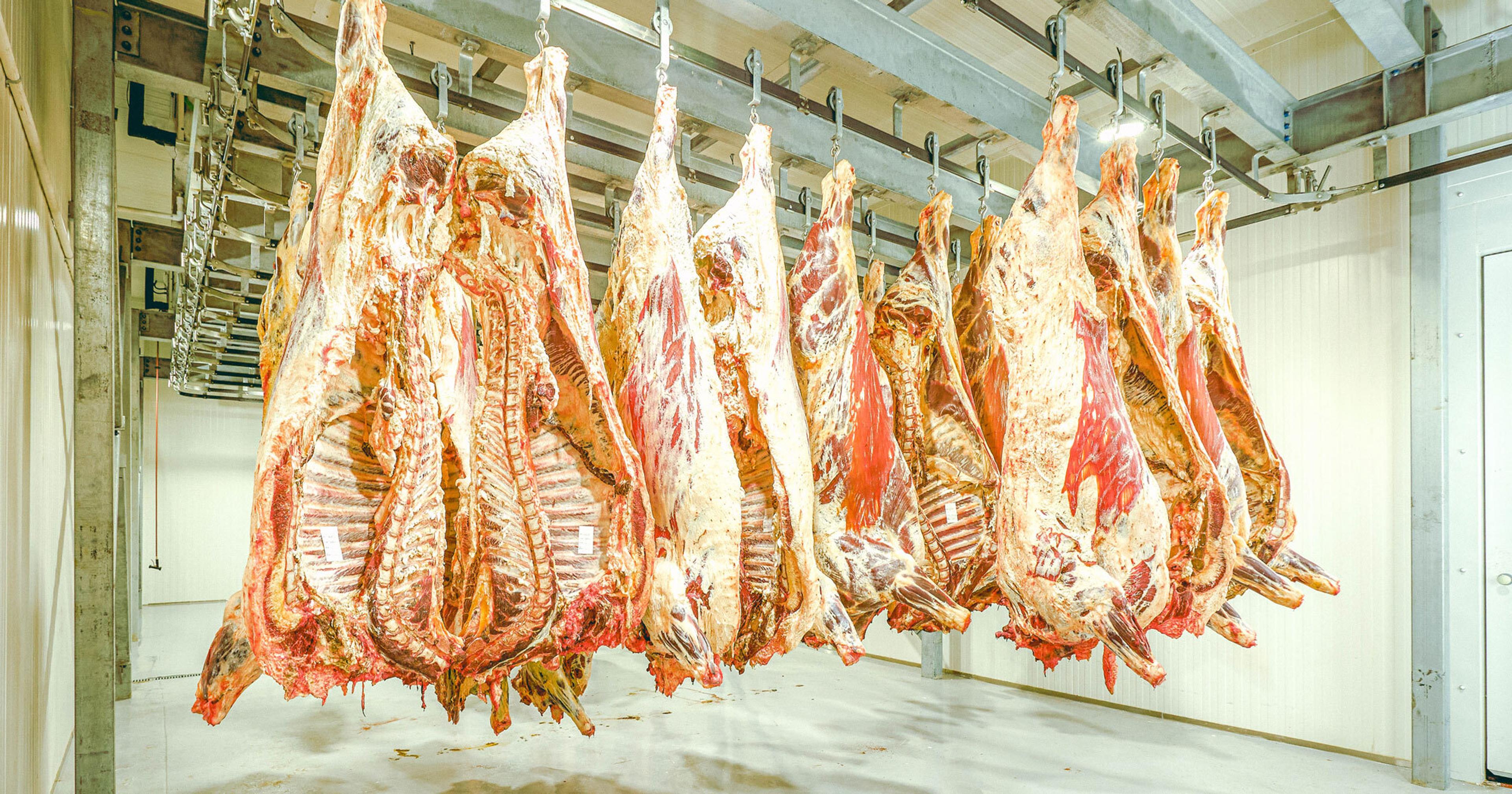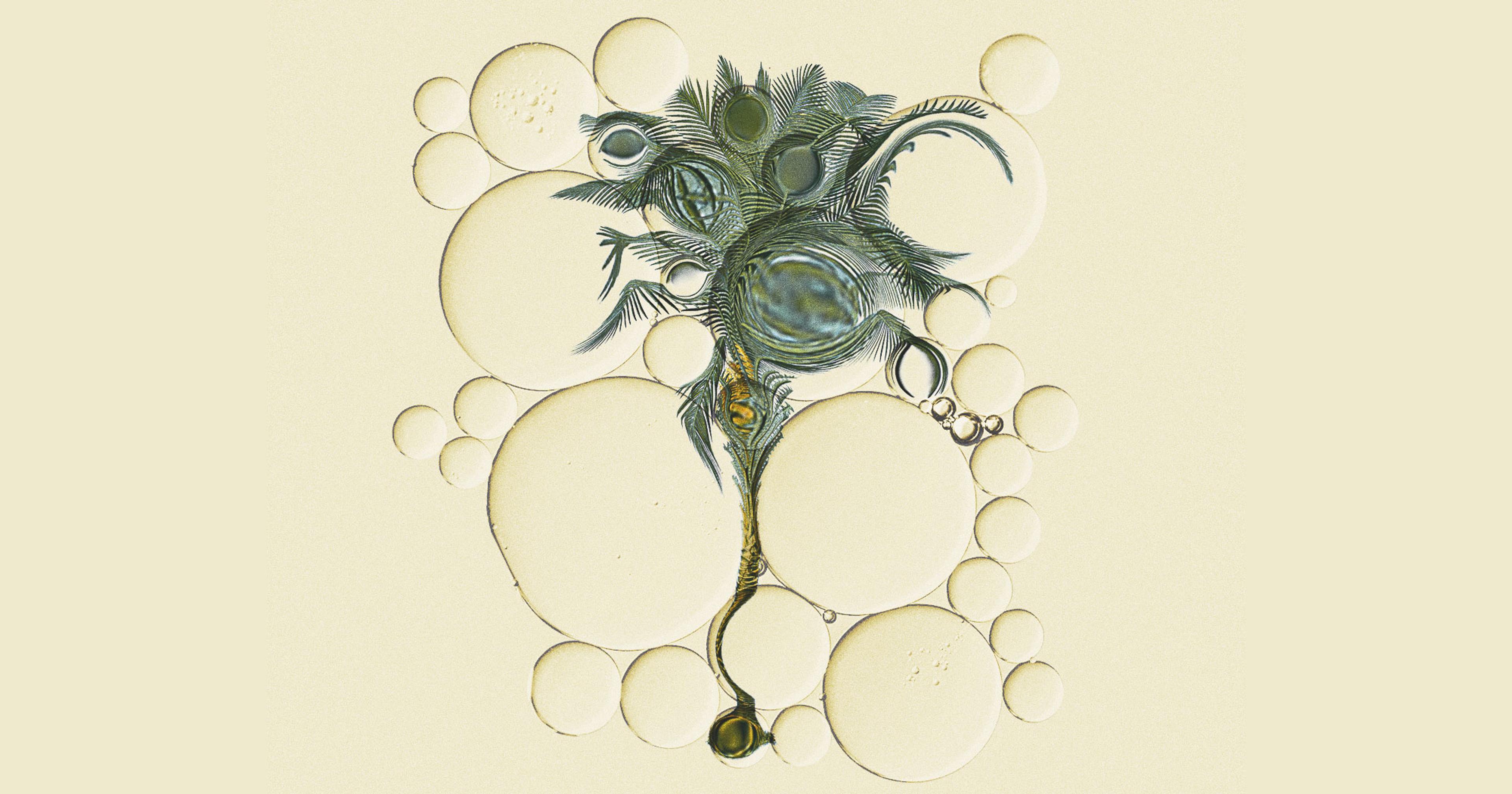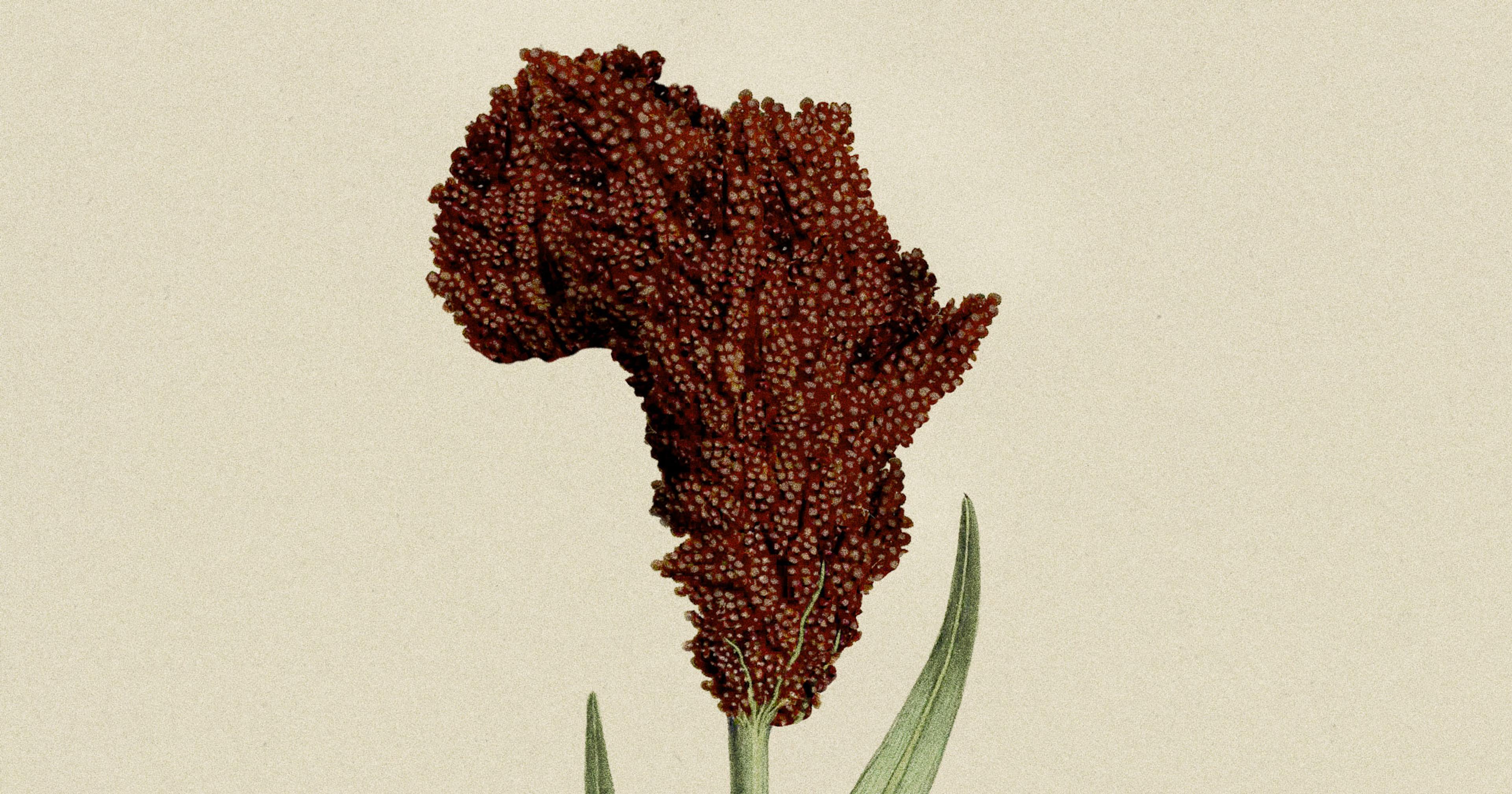There’s an underground knowledge pipeline connecting pregnant and postpartum parents to well-sourced herbs.
“It was like a lightning bolt.” When you picture postpartum anxiety, you might envision a worried mama hovering over her new baby’s bassinet. But for Julia Rockwell, a California mom, the birth of her second son sent debilitating waves of panic through her body.
“It was very extreme,” she said. And it didn’t go away. Rockwell wasn’t against taking antidepressants, but when her doctor said there was a chance they could make things worse, she wanted another option. “I can’t go with worse — worse would be falling off a cliff.” To her, playing with dosages and finding the right medication seemed more daunting than talking to local herb experts.
Rockwell reached out to her doula (now a yoga instructor) to figure out what to do. Doulas are certified birth workers who help women from the trying-to-conceive process, through pregnancy and birth, into the postpartum years, providing physical, emotional, and logistical support. Sometimes, parents turn to them for unofficial medical advice, which can include determining what herbs might help with various issues.
So, Rockwell was in the right place — the “natural” birthing community, a tightly woven selection of doulas and midwives, therapists and herbalists, that seem to exist in cities across the country when you ask the right person. They connected Rockwell to the most cleanly sourced herbs and plants, and gave her food recommendations to improve her postpartum anxiety (PPA). Years later, she too would become an official part of a sustainable and natural living education, authoring Mothering Earth. But this was the beginning of her journey.
Not everyone believes in the power of these medicinals, and peer-reviewed research is sparse. But for those who swear by them, they can make or break the pregnancy and postpartum journey, a sensitive and vulnerable time for many. For pregnant and postpartum parents who do turn to herbs, there’s never been a more important phase of life to care about clean, safe, and properly sourced selections.
Healing the Birthing Body
Some herbs are called “galactagogues,” intended to increase breastmilk production in postpartum mothers. La Leche League International, a globally recognized breastfeeding resource, shares herbs and foods from barley and basil to fenugreek and turmeric, which have been used for centuries. Around 43% of breastfeeding parents internationally have tried herbs for a variety of breastfeeding challenges, such as trying to produce more milk, or dry up a milk supply that’s no longer needed.
PPA, postpartum depression (PPD), and lactation issues are far from the only reason some birth workers are trying to help perinatal people access clean herbs. Midwives have extensive guides with remedies for diaper rashes, nipple chapping, birth pain, uterus contractions, and more. Multiple studies point to the efficacy of Ashwagandha for PPA and stress reduction, though herb-related claims for new moms are always up for debate.
Rockwell looked to birth workers to advise her on safe and effective remedies that were high-quality, wouldn’t impact the health of her baby during nursing, and might have a dual effect on breastfeeding and PPA. She ended up at a landmark co-op grocery store in San Francisco with an extensive vetting process for herb sourcing.
“It’s good for rebuilding your blood supply after going through the transition of childbirth where there’s a big blood volume loss.”
She said that within a week of taking a combination of Omega 3’s, a multivitamin, lemon balm, and other herbs, symptoms started improving. “I went from feeling like I was being fried at 100 … to within two months, I felt like I was more at a 20. I was a little bit on eggshells, but I felt like I could function,” Rockwell said.
There are numerous other medicinal remedies in the perinatal time period, with debatable results. For instance, garlic is sometimes used by pregnant women as an antidote to heartburn. Or there’s Jujube fruit or red dates, traditionally used in Chinese medicine to help perinatal women nourish the blood. “For the postpartum person, it’s good for rebuilding your blood supply after going through the transition of childbirth where there’s a big blood volume loss,” said Beth Rees, a San Francisco educator, herbalist, and doula.
Not all herbal practices have to heal a major medical condition — some are just for comfort, and connecting to the practice of using herbs. A sitz bath, for example, soothes all the parts strained by birth. Carrie Murphy, Texas-based herbalist and doula jokes she didn’t expect it to help much when she tried it herself, but said it “felt insanely good.”
Careful Sourcing
The traditional medical community warns that some herbs contain “additives and contaminants” not listed on labels, making sourcing a higher priority for perinatal consumers.
“You should be careful where you source herbs in the perinatal time because your body is more vulnerable, and if you don’t know where the herb is coming from, you don’t know it’s actually the herb it says it is,” said Murphy. This population specifically, and the newborns they are nursing, can mean “serious risks” if they purchase counterfeit or mislabeled herbs, she added. Murphy recommends buying from a small scale herb farm where people know what it is and what it can do. “That makes a difference.”
If you ask a birth worker who they trust for herb sourcing, it’s likely they’ll mention Mountain Rose Herbs, a Eugene, Oregon, grower, processor, distributor, and retailer with notably high standards in sourcing. Murphy called it the “gold standard” in herb sourcing and supplying practices.
They have multiple certifications, including OTCO/USDA Organic, Non-GMO Verified, and Fair for Life. The Fair for Life ethical sourcing program reviews the herbs, auditing working conditions, labor practices, environmental programs, social benefits, and company transparency.
“We conduct testing on all of the botanicals we bring in, and each lot is examined to confirm identity, and ensure quality and purity. For expecting and postpartum moms, this is incredibly important.”
Jessicka Nebesni, senior marketing coordinator at Mountain Rose, said moms are a “huge segment” of their client base, and that a large percentage of their customers first come to them when they are pregnant. Other clients include a “wide range of customers which includes healthcare practitioners, nutritionists, home herbalists, the natural beauty community,” she said. But for pregnant moms learning about herbs for the first time during pregnancy, some go on to integrate them as part of their lifestyle permanently.
“We conduct testing on all of the botanicals we bring in, and each lot is examined to confirm identity, and ensure quality and purity. For expecting and postpartum moms, this is incredibly important,” Nebesni said.
Their success in the birthworker community also comes from their extensive commitment to education, from educational events to impact reports that give a “transparent lens” ensuring companies follow ethical sourcing business practices.
Rockwell recommends the San Francisco-based advocacy group Natural Resources for education around sourcing herbs, as they want to help families bring in “gentle herbal allies as part of their self care during the perinatal timeframe.”
“We talk a lot about how to find good sources of herbs, and how to find good sources of herbs based on what modality you’re working with, because Western herbs might be totally different than sourcing traditional Chinese medicine herbs,” she said.
“I think that’s another part of herbs. They aren’t just medication — they also are living things.”
Perinatal parents who simply pick the highest ranking herb blend on Amazon might be missing something. The growing region, the potential for wildcrafting (without depleting the source), the growing process, and the packaging all play into the herb’s safety and efficacy, Rees said.
“Definitely whether or not they are grown organically, or how they are being treated in terms of pesticides, the soils, and heavy metals … mostly because the baby is going to be having an introduction to all of the things they are imbibing,” she added.
Tony and Rachelle Wright, herb farmers in a multi-generation family farm in Munfordville, Kentucky, said most farmers grow herbs based on their own interests and uses. “We grow dill because we consistently pickle cucumbers and eggs for our winters. We grow garlic, sage, basil, parsley, mint, lavender and oregano to integrate into our meals and teas.” They face similar obstacles as other farmers do with any crop. Rachelle said, “Bugs who like the taste of the herb can sometimes give us some competition.”
The Wrights’ focus is on loose, rich soil, and proper weeding so their roots are getting enough water and nutrients. “[The herbs] love dappled sunlight in the middle of the day and full sun in the mornings and afternoons. An optimal plant produces more nutrients, better cell structure, just a hardier, more robust plant,” Rachelle Wright said. She added that soil health and water conservation are top of mind when it comes to sustainable herb growing. “We use manure compost on our soil at the end of every growing season in preparation for the next. When sourcing products we like to know exactly where the seed or plant has come from, for us, the more local the better.”
Educating New Moms
Parents skipping the education aspect of herbal education might have lower success rates with diagnosis, usage, or application. Instead of Googling and guessing, Rees hopes perinatal people seek education surrounding herbs, and their proper sourcing by looking up a local herb store or working with a larger farm that grows fields of necessary herbs sustainably.
Murphy agrees. “There may be questions of ‘How’s it dried?’ Some people dry in open air versus a dehydrator,” she said. “There’s a lot of implicit trust, that some people may feel more comfortable with than others. It’s hard to grow herbs at scale.”
Midwive influencers like Dr. Aviva Romm have taken to social media to educate moms about herbal uses, from St. John’s Wort for severe depression to adaptogens for circadian rhythm. She posts Instagram stories of her walking around in nature, identifying herbs in the roadside fields herself. But for those not working with such a specialist, birth workers hold the knowledge of who to ask next.
Choosing high-quality herbs is also about the intentionality that doulas want their clients to carry with them into motherhood. “It’s a modality that’s really connected to our humanity,” said Murphy. She is also part of a movement trying other medical interventions than traditional medicine offers. “I prefer not to go straight to an antibiotic or painkiller. If I can use an herb before something else, I will.”
“I don’t know if it was the water, or the constituents of the herbs, but just sort of taking this time to mindfully care for myself. I think that’s another part of herbs. They aren’t just medication — they also are living things,” Murphy said. And for those conceiving, growing, birthing, and raising living things themselves, ethically sourced herbs accompany the most natural journey of all.



